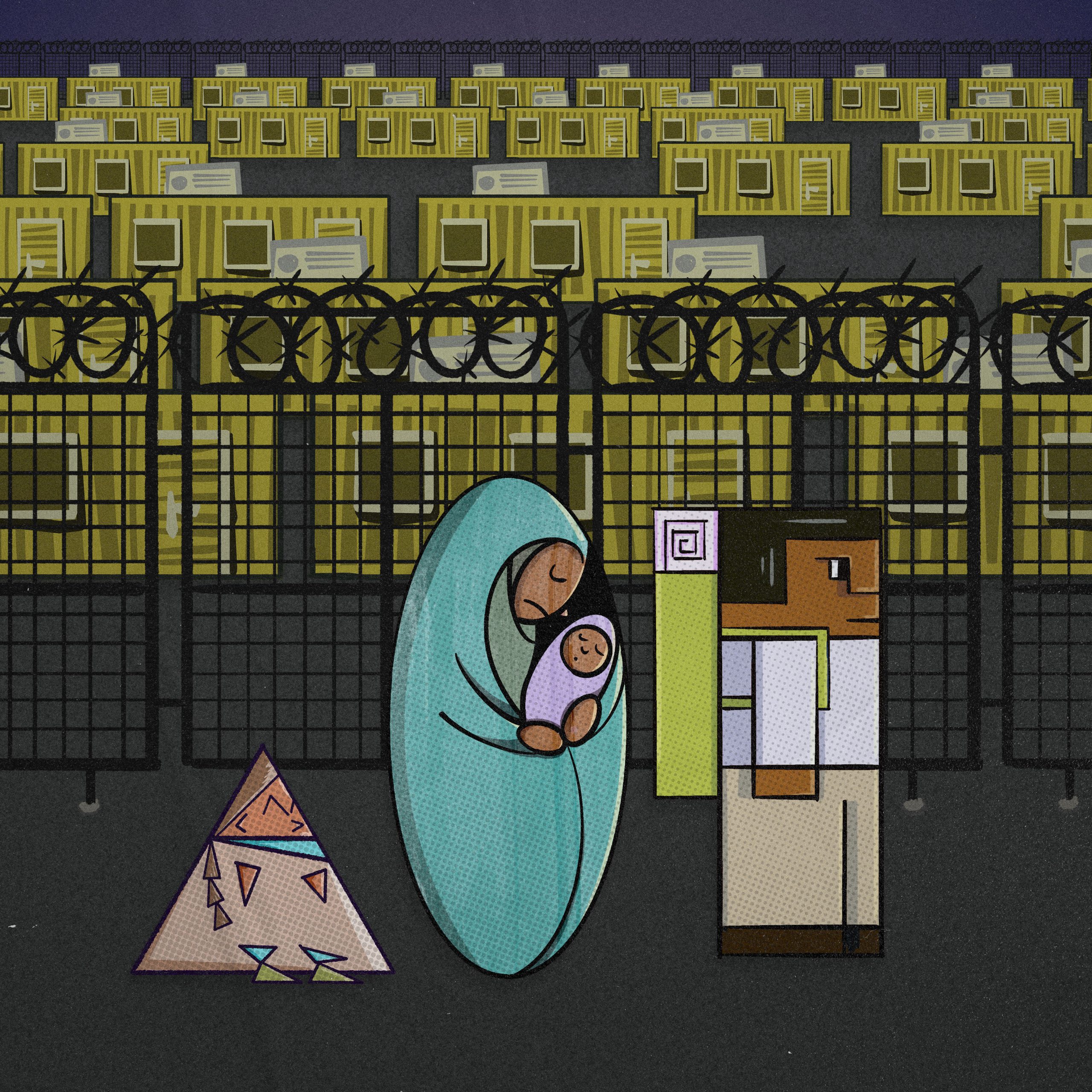A refugee mother and her young children were starved by Hungarian authorities
The clients of the Hungarian Helsinki Committee have won a case against the state before the European Court of Human Rights. The asylum-seeking mother and her 5-year-old and 5-month-old children were denied food in the transit zone for 37 days. Their lives and health were saved by the support of their fellow migrants and charities.
Translation is available for this content
Váltás magyarraThe husband of the Afghan F. O. had converted to Christianity, so they could not stay in their home country. First, the man and the eldest child fled. They made it as far as Germany. The pregnant woman followed them with the second child. They applied for asylum in Hungary, but after the asylum procedure started, they went after the husband. They made it as far as Austria. From there, the authorities deported them to Bulgaria, saying that that’s where they had entered the territory of the EU. But they had no chance of protection there, so they left again. They were waiting in Serbia to re-enter Hungarian territory. The third child was born there.

They were admitted to the Röszke transit zone of Hungary in July 2017. The woman and her five-year-old child were consideredd as “repeated” asylum applicants by the domestic authorities. They were therefore placed in the asylum section within the transit zone. They were detained for 37 days, which is a seven-day-longer period than what the law allows for children, and they were also starved.
One of the most repugnant practices of illegal transit detention was that adults and repeated applicants in the immigration detention centre were not given food by the Immigration and Asylum Office (now called National Directorate-General for Aliens Policing). F. O. and his children were also starving. The woman’s breast milk dried up, and although the children were not supposed to be covered by this terrible regulation, the baby was not given adequate infant formula. The family was kept alive by the humanity of their fellow citizens and food donations from charities.
Once they were out of the transit zone, it turned out that Germany was responsible for processing their asylum application. So they were allowed to enter officially and they were then granted protection. They have been living there ever since.
After the hellish ordeal, the family turned to the European Court of Human Rights in February 2018 with the help of the Hungarian Helsinki Committee. Last week, the Strasbourg Court ruled that the Hungarian state had violated the law, because no one should be subjected to torture or inhuman, degrading treatment or punishment. Especially not mothers and innocent children in need of help. The Strasbourg judges therefore ordered the Hungarian State to pay a total of €7,500 in just reparation.
“After six years, our clients have received redress. Once again, what we warned of from the outset has been proven: the rules and practices of transit zones were often unlawful and put the physical safety of clients at risk. This is one such case out of many hundreds, many thousands. Currently, asylum seekers who do not come from Ukraine are essentially not allowed into the country, in violation of EU law. We are working to ensure that the state finally acts fairly towards them again.” – Tamás Fazekas, the lawyer of the Hungarian Helsinki Committee, who represented the three asylum seekers in the Strasbourg proceedings, assessed last week’s judgment.